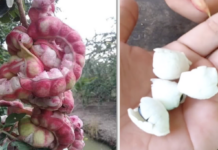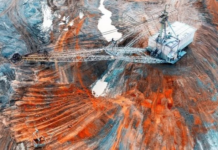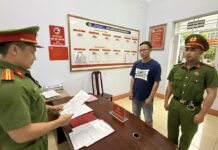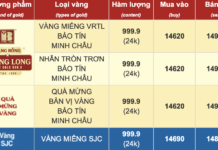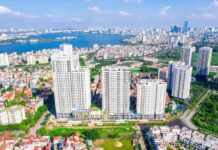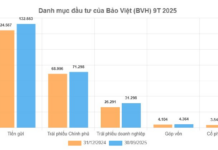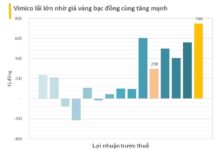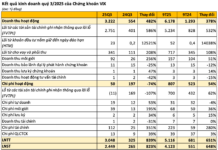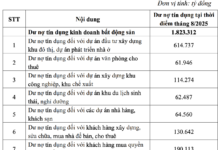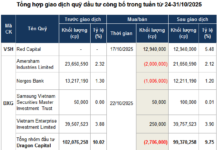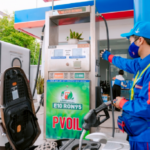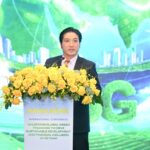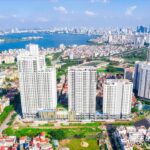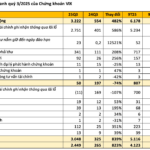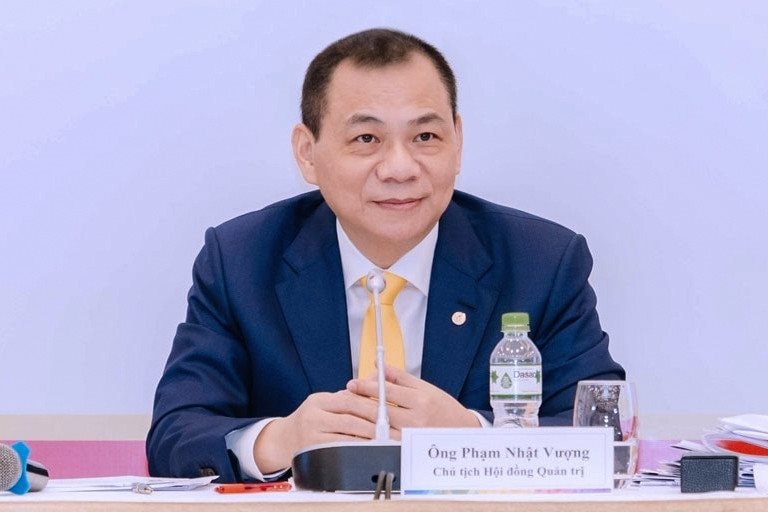
Billionaire Pham Nhat Vuong at Vingroup’s 2025 Annual General Meeting. Photo: VIC
This is the “Let’s Take Action for a Blue Sky” campaign that was launched on September 10th. The campaign is initiated by the Green Future Fund, along with Vingroup’s member and affiliated companies, to mark the Clean Air for Blue Sky Day (September 7) and the Ozone Layer Protection Day (September 16). It is also a continuation of the “Green Wednesday” program series. This nationwide campaign aims to raise community awareness, encourage practical actions, and inspire a harmonious and responsible lifestyle towards the environment.
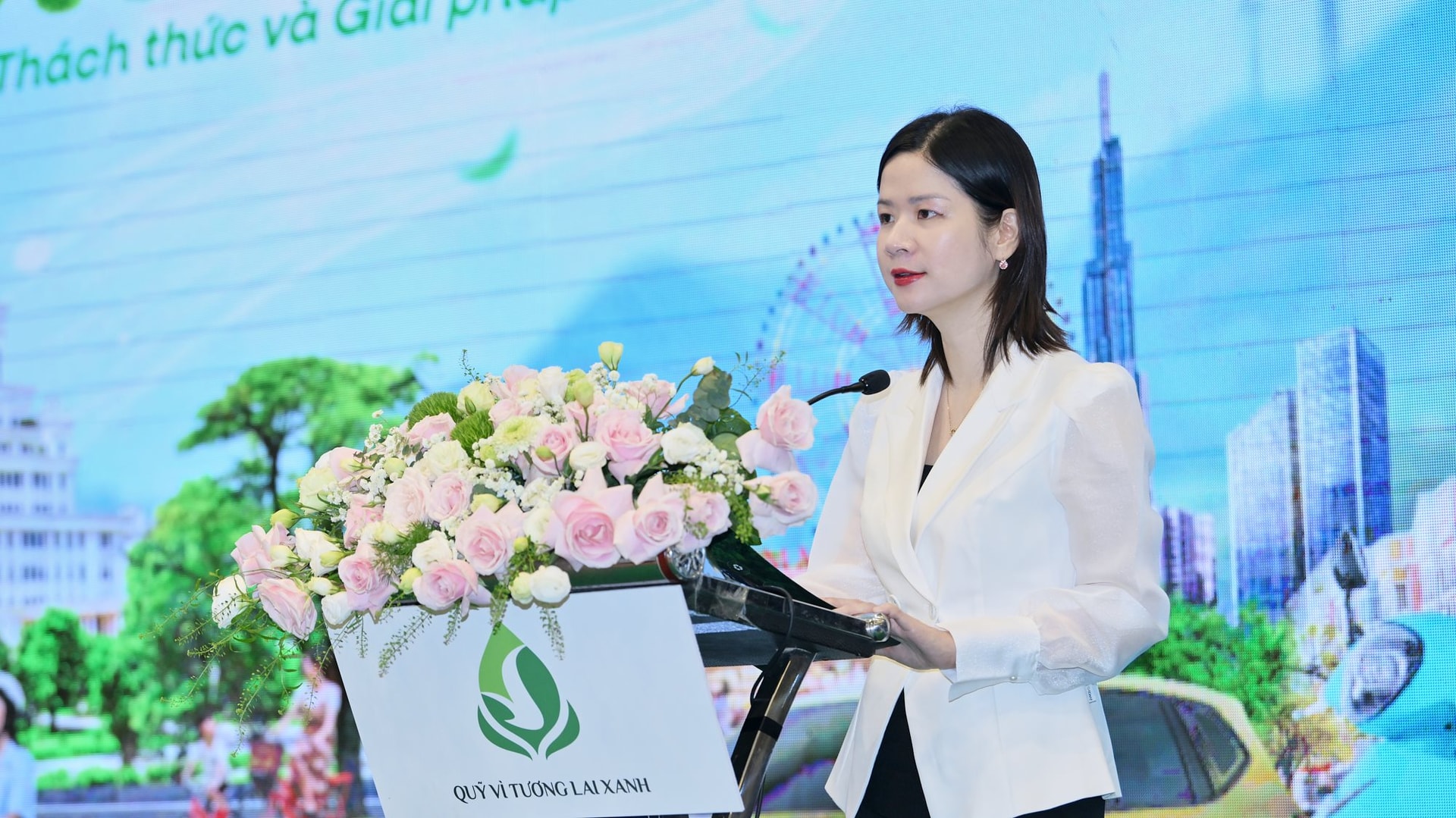
Dr. Le Thai Ha, Executive Director of the Green Future Fund, Vingroup, delivered a speech.
Dr. Le Thai Ha, Executive Director of the Green Future Fund, Vingroup, shared that according to international reports, Vietnam ranks 22nd-23rd among the most air-polluted countries globally and has the second-worst air quality in ASEAN. Notably, Hanoi was once among the eight most polluted capitals worldwide. It is estimated that air pollution causes approximately 60,000 premature deaths annually in Vietnam, with prevalent diseases such as cardiovascular diseases, stroke, lung cancer, chronic obstructive pulmonary disease, and respiratory infections.
“The ‘Let’s Take Action for a Blue Sky’ campaign is not just a collection of separate activities but a comprehensive strategy that harmoniously covers four critical aspects of sustainable development. These include community commitment, green consumption, green knowledge, and energy conservation – emission reduction. With the accompaniment of the entire Vingroup ecosystem and the widespread response from the community, we believe that this campaign will contribute to protecting the atmosphere – the foundation of human life – and building a green and sustainable future for generations to come,” emphasized Dr. Le Thai Ha.
At the campaign launch and seminar titled “Joining Hands to Protect the Blue Sky – Challenges and Solutions,” Assoc. Prof. Dr. Nguyen Dinh Tho, Vice Director of the Institute of Strategy and Policy on Agriculture and Rural Development, Ministry of Agriculture and Environment, shared that air pollution in Vietnam is becoming increasingly severe. In large cities, smoke and vehicle emissions account for a significant proportion, contributing to the rise in respiratory and cardiovascular diseases. In reality, the commitment to achieving net-zero emissions by 2050 requires the nation to take robust steps to reduce emissions in the transport sector.
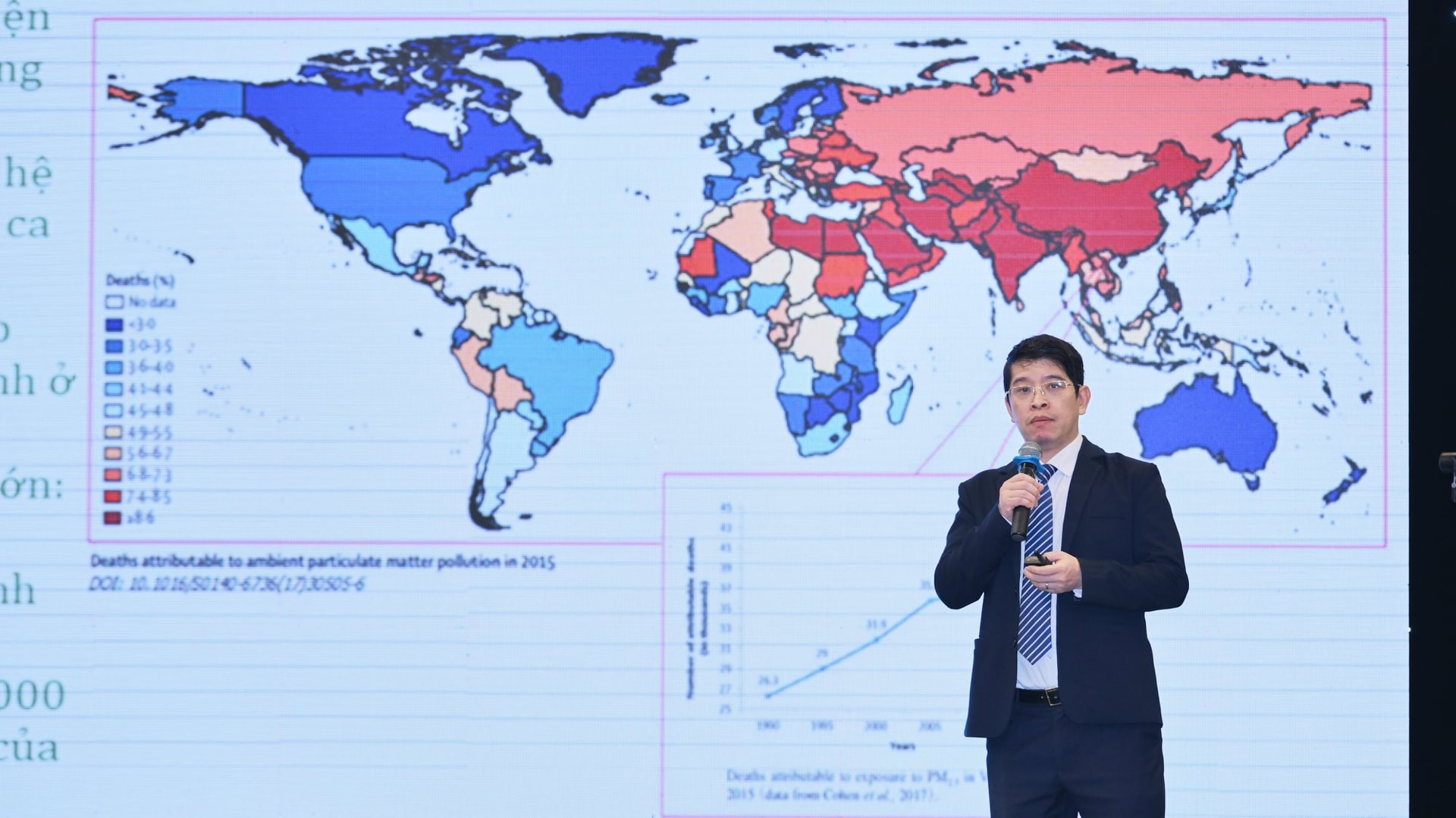
Assoc. Prof. Dr. Nguyen Dinh Tho shared the causes of air pollution in Vietnam.
Assoc. Prof. Dr. Nguyen Dinh Tho stated that the Low Carbon Fuel Standard (LCFS) is considered a policy tool capable of bringing about fundamental changes in addressing air pollution in Vietnam. According to him, although preferential tax policies for electric vehicles have been issued, they are still in the initial encouragement stage and are not enough to form a self-operating market. Meanwhile, LCFS can serve as a regulatory tool, setting carbon emission standards for each unit of energy and creating economic pressure on businesses to either change technology or incur higher costs.
Assoc. Prof. Dr. Dam Hoang Phuc, Director of the Automotive Engineering Training Program at Hanoi University of Science and Technology, opined that to “Join Hands to Protect the Blue Sky” or promote green transformation in general, we must recognize that this is a comprehensive and simultaneous task with three pillars that must go hand in hand like “a tripod,” including policies, technology, and community awareness. “Only by implementing these three pillars can the green transformation be sustainable,” said Assoc. Prof. Dr. Dam Hoang Phuc.
Vietnam has many advantages in green transformation, turning challenges into opportunities for development. “First, Vietnam has a strong political commitment from the government. Second, Vietnam has advantages in renewable energy sources, such as a vast coastline, sunshine, and wind… We have all the elements to transition to renewable energy. Third, a characteristic of Vietnamese people, especially the youth, is a strong affinity for technology and a penchant for change. These are three significant advantages for Vietnam,” shared the Director of the Automotive Engineering Training Program at Hanoi University of Science and Technology.
“Vietnam Must Act Now”
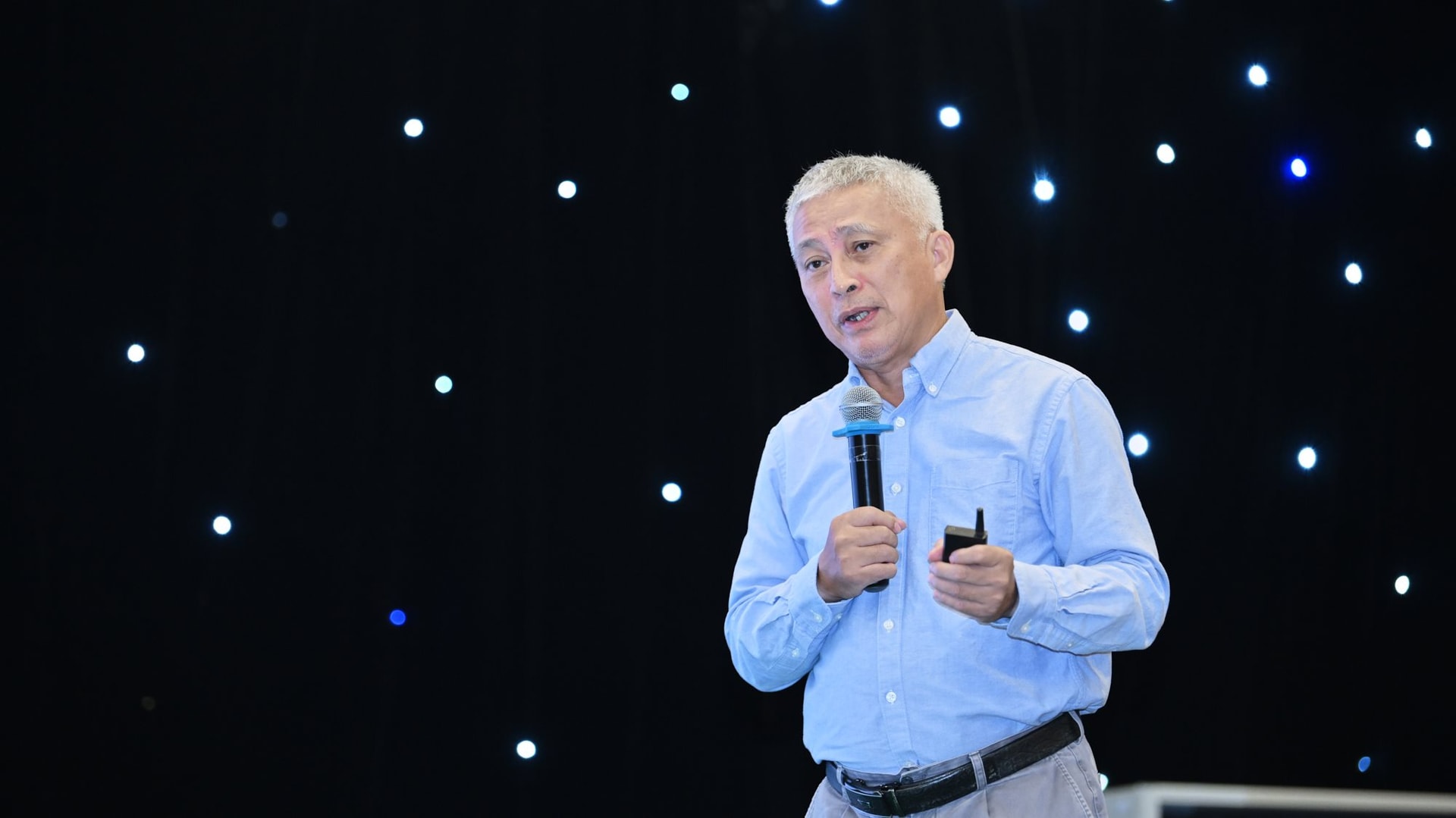
Dr. Hoang Duong Tung suggested measuring air pollution levels.
With little time to hesitate, according to Dr. Hoang Duong Tung, President of the Vietnam Clean Air Network (former Deputy Director-General of the Vietnam Environment Administration, Ministry of Agriculture and Environment), we must take action. “What I desire most is action,” he emphasized. We must create breakthrough solutions in scientific research to produce measurable results and indicators in areas such as transportation and industry. These specific data will inform us of our progress toward “Net Zero by 2050″ and enable us to make necessary adjustments,” expressed Dr. Duong Hoang Tung.
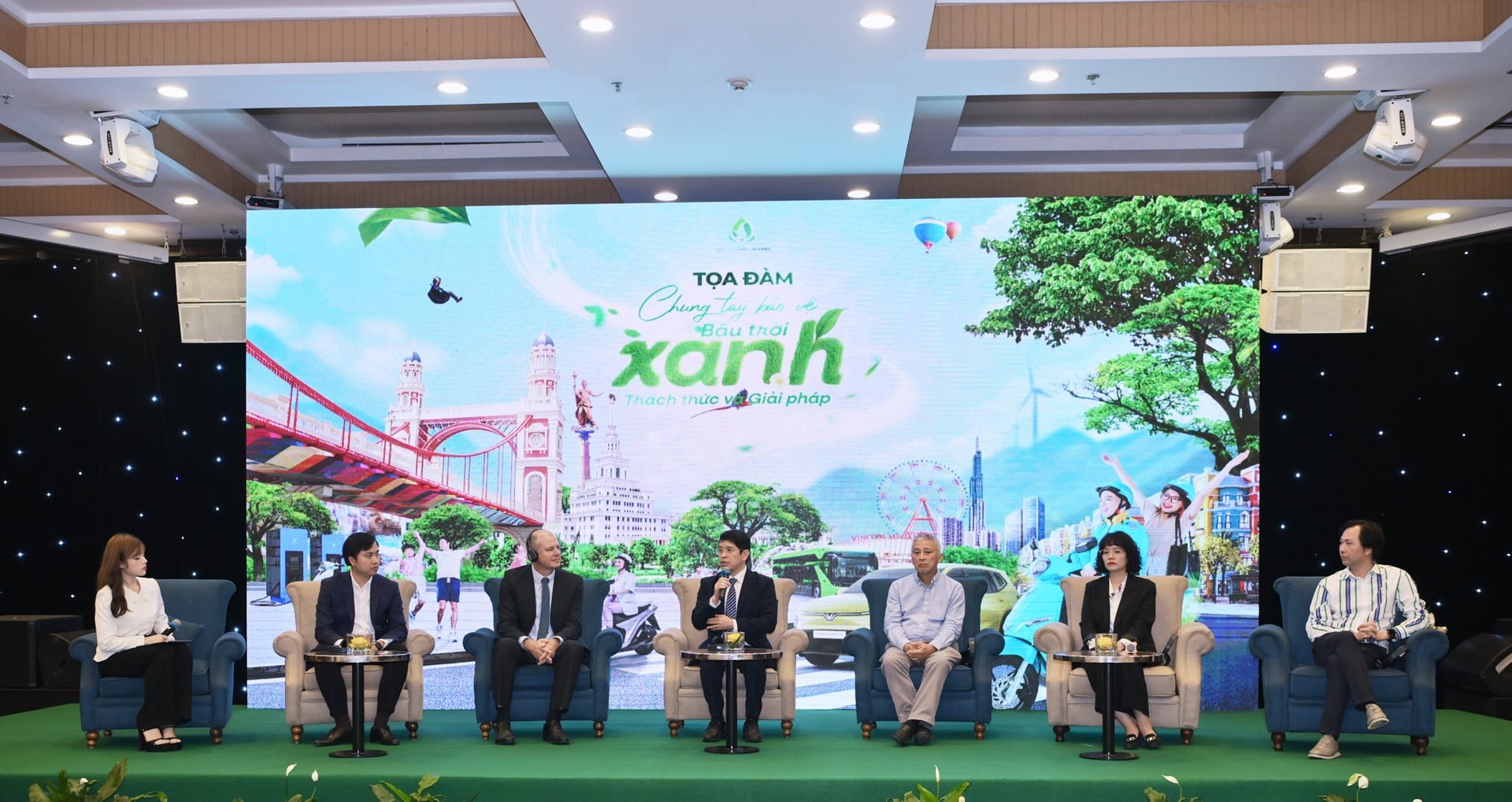
Experts shared their insights at the seminar.
From a business perspective, Mr. Vo Le Duy Duc, Director of Energy Business at VinEnergo, stated that the business community needs to recognize the importance of energy transition. “In addition to government policies and raising public awareness, large enterprises must take the lead in energy transition and commit to zero emissions. This will be a significant driving force for Vietnam to achieve its ‘Net Zero’ goal. As for VinEnergo, despite being a young company, we are working tirelessly to implement clean energy projects as soon as possible and provide as much renewable energy as possible to the national power system.”
“The year 2050 is still far away from the peak temperature. The year 2050 is still far away for all of us. But suddenly, I recalled the words of one of the Chinese experts we worked with earlier this year: ‘Don’t just set emission reduction targets, aim for clean air.’ So, I propose one thing: Let’s make clean air and blue sky our measure. We can measure them daily and annually. Let’s make them our targets for action towards 2050. Let’s link air pollution and climate change and consider the actions we take towards 2050 that can be measured today, tomorrow, next year, and the year after that, for clean air in Hanoi and Vietnam,” recommended Mr. David Payne, Program Management Expert of UNDP Vietnam.
A highlight of the “Let’s Take Action for a Blue Sky” campaign is a series of activities designed around four pillars: Community Engagement, Green Consumption, Green Knowledge, and Energy Conservation and Emission Reduction.
For instance, regarding Community Engagement, VinFast launched a movement across all dealerships and service centers to reduce unnecessary electricity usage and encouraged customers to spread the message on social media.
The Green Initiative: Four Vietnamese Banks Embrace the Green Trade Union
Vietnam is now home to four commercial banks that are proud members of the prestigious Alliance for Green Commercial Banks: OCB, HDBank, MSB, and VPBank. These financial institutions have taken a leading role in the country’s journey towards a sustainable and environmentally conscious future. By joining this esteemed alliance, they have demonstrated their commitment to driving positive change and contributing to the global effort to combat climate change.
When will E10 biofuel completely replace fossil gasoline?
The Ministry of Industry and Trade has recently unveiled a draft regulation outlining a roadmap for the adoption of biofuel blends in Vietnam. This forward-thinking initiative underscores the government’s commitment to fostering a sustainable and environmentally conscious energy future for the nation.
“Shrimp Exports to the US Face a Tide of Taxes and Trade Barriers”
The seafood industry is facing a myriad of challenges, as shared by a representative from the Fisheries Association at a recent conference. The speaker expressed hopes for a more conducive environment and tailored financial tools to emerge in the future, akin to what NamABank offers, enabling seafood businesses to thrive sustainably and enhance their global competitiveness.
Unlocking Green Finance in Vietnam: From a “Common Language” to an International Financial Center
Experts have outlined a clear roadmap to boost sustainable investment in Vietnam. The government’s introduction of a “common language” is seen as a breakthrough policy move, while the future establishment of an International Financial Center is expected to be the “key” to enhancing transparency and investor confidence. These foundational solutions aim to bridge the gap between the massive capital requirements for Net Zero goals and the current market’s modest size.


